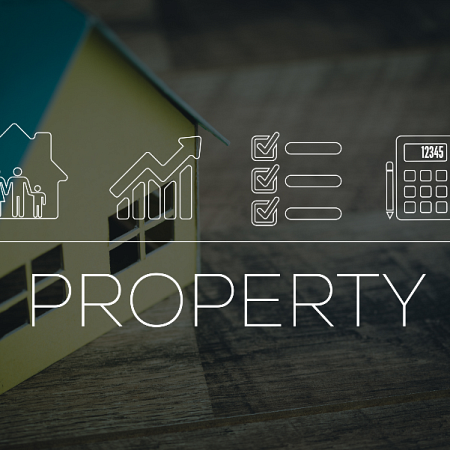If you own a property, whether it’s a residential or commercial space, you may have heard about property management. But what exactly is property management and why is it important? Property management refers to the operation, control, and oversight of real estate properties. It involves the management of both residential and commercial properties, ensuring that they are well-maintained and profitable.
The role of a property manager
A property manager is an individual or a company that takes care of all aspects related to property management. Their primary role is to act as a liaison between the property owner and the tenants. Property managers handle various responsibilities, including advertising and marketing vacant properties, screening potential tenants, collecting rent payments, handling maintenance and repairs, and ensuring that the property complies with local regulations.
Hiring a property manager can be beneficial, especially if you own multiple properties or if you don’t have the time or expertise to manage your property effectively. They have the knowledge and experience to handle all the day-to-day tasks involved in property management, allowing you to focus on other areas of your life or business.
Benefits of hiring a property manager
There are numerous benefits to hiring a property manager. Firstly, they have extensive knowledge of the local rental market and can determine the optimal rental price for your property. This ensures that you maximize your rental income while remaining competitive in the market. Additionally, property managers have a vast network of potential tenants and can quickly fill vacancies, minimizing the time your property remains unoccupied.
Property managers also play a crucial role in screening potential tenants. They have the expertise to conduct thorough background checks, including credit history, employment verification, and rental history. This reduces the risk of renting to unreliable or problematic tenants, saving you from potential headaches and financial losses.
Furthermore, property managers handle all tenant communications, including rent collection and addressing maintenance requests. This not only saves you time and effort but also ensures that any issues are promptly resolved, leading to tenant satisfaction and retention. They also have the knowledge and resources to handle legal matters, such as evictions and lease agreements, protecting your interests as a property owner.
Types of properties managed by property managers
Property managers can handle various types of properties, including residential homes, apartment complexes, commercial buildings, and even vacation rentals. Whether you own a single-family home or a large commercial property, a property manager can tailor their services to meet your specific needs.
Residential property managers specialize in managing rental homes and apartments. They handle tasks such as tenant screening, lease agreements, rent collection, and maintenance. On the other hand, commercial property managers focus on managing office buildings, retail spaces, and industrial properties. They deal with lease negotiations, tenant improvements, and ensuring that the property complies with zoning and safety regulations.
Vacation rental property managers cater to property owners who rent out their homes or apartments on a short-term basis. They handle bookings, guest inquiries, property maintenance, and cleaning services. Whatever type of property you own, there is a property manager who can assist you in maximizing its potential.
Responsibilities of a property manager
A property manager’s responsibilities may vary depending on the type of property and the agreement with the property owner. However, some common responsibilities include:
- Marketing and advertising the property to attract potential tenants.
- Screening and selecting tenants through background checks and rental history verification.
- Collecting rent payments and enforcing late payment penalties.
- Conducting regular property inspections to ensure it is well-maintained.
- Handling maintenance and repairs, either through in-house staff or external contractors.
- Responding to tenant inquiries and addressing any complaints or issues promptly.
- Managing financial records and providing regular reports to the property owner.
- Keeping up-to-date with local laws and regulations related to rental properties.
- Handling lease agreements, renewals, and terminations.
- Handling evictions, if necessary, in compliance with legal procedures.
The specific responsibilities may vary, but a property manager’s goal is to ensure that the property is well-managed, profitable, and meets the needs of both the property owner and the tenants.
The property management process
Property management involves a series of processes that ensure the smooth operation and maintenance of a property. These processes typically include:
- Property evaluation: Assessing the property’s condition, market value, and rental potential.
- Marketing and advertising: Promoting the property to attract potential tenants.
- Tenant screening: Conducting background checks, verifying rental history, and selecting qualified tenants.
- Lease agreement: Preparing and signing lease agreements that outline the terms and conditions of the tenancy.
- Rent collection: Collecting rent payments and enforcing late payment penalties, if necessary.
- Maintenance and repairs: Handling regular maintenance tasks and addressing any repairs promptly.
- Tenant communication: Addressing tenant inquiries, concerns, and complaints in a timely manner.
- Financial management: Keeping track of income and expenses, providing regular financial reports to the property owner.
- Regular inspections: Conducting routine inspections to ensure the property is well-maintained and in compliance with regulations.
- Lease renewal or termination: Managing lease renewals or terminations, including negotiating new terms or handling move-out procedures.
These processes are designed to streamline property management and ensure that both the property owner and the tenants are satisfied with the arrangement.
How property management benefits property owners
Property management offers numerous benefits to property owners. Firstly, it saves time and effort by handling all the day-to-day tasks involved in managing a property. Property owners can focus on other aspects of their lives or businesses, knowing that their property is in capable hands.
Property managers also have extensive knowledge of the local market, enabling them to set optimal rental prices. This ensures that property owners maximize their rental income while remaining competitive. Additionally, property managers have a network of potential tenants, reducing vacancy periods and ensuring a steady rental income stream.
Moreover, property managers handle all tenant communications, including rent collection and addressing maintenance requests. This eliminates the need for property owners to deal with tenant issues directly, saving them time and potential conflicts. Property managers also have expertise in dealing with legal matters, such as evictions and lease agreements, protecting the property owner’s interests.
How property management benefits tenants
Property management not only benefits property owners but also tenants. Property managers provide a professional and responsive point of contact for tenants, ensuring that their concerns and issues are addressed promptly. They also handle maintenance and repairs, ensuring that the property is well-maintained and safe.
Additionally, property managers have processes in place to handle emergencies, such as plumbing or electrical issues, which ensures that tenants’ needs are met quickly. They also enforce lease agreements and regulations, ensuring that all tenants are treated fairly and that the property remains a peaceful and enjoyable place to live.
Property managers also provide convenience to tenants by offering various payment options and easy communication channels. This enhances the tenant experience and fosters a positive relationship between the property owner and the tenants.
Choosing the right property management company
Choosing the right property management company is crucial for a successful property management experience. When selecting a property management company, consider the following factors:
- Experience and expertise: Look for a company with a proven track record and extensive experience in managing properties similar to yours. They should have a thorough understanding of the local market and relevant regulations.
- Services offered: Determine what services the property management company provides and if they align with your specific needs. Consider aspects such as tenant screening, maintenance, financial management, and legal compliance.
- Reputation and references: Research the company’s reputation and read reviews from property owners and tenants. Request references and contact previous or current clients to get a better understanding of their experience with the company.
- Communication and responsiveness: Evaluate the company’s communication processes and responsiveness to inquiries. A property management company should provide clear and timely communication to both property owners and tenants.
- Fees and contracts: Understand the fee structure and contract terms before signing an agreement with a property management company. Compare fees and services among different companies to ensure you are getting a fair deal.
By considering these factors and conducting thorough research, you can select a property management company that meets your needs and ensures the successful management of your property.
Conclusion: the importance of property management
In conclusion, property management plays a vital role in ensuring the successful operation and profitability of real estate properties. Whether you own residential or commercial properties, hiring a property manager can save you time, effort, and potential headaches. Property managers handle various responsibilities, such as tenant screening, rent collection, maintenance, and legal compliance. They have the knowledge and expertise to navigate the complexities of property management, allowing you to focus on other aspects of your life or business.
Not only does property management benefit property owners, but it also enhances the tenant experience. Property managers provide a professional and responsive point of contact for tenants, addressing their concerns and ensuring that the property is well-maintained. By hiring a property manager, you can create a positive and mutually beneficial relationship between property owners and tenants.
If you own a property, consider the advantages of property management and the value it can bring to your investment. Take the time to choose the right property management company that aligns with your needs and goals. With the assistance of a property manager, you can optimize the potential of your property and enjoy the benefits of passive income and peace of mind.
Website: home-nomad.com


